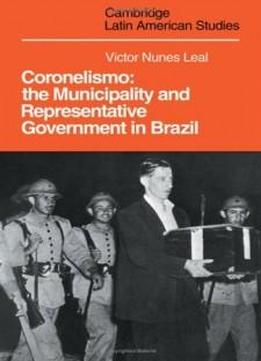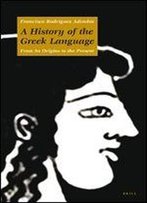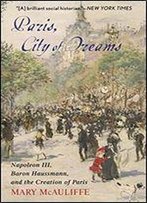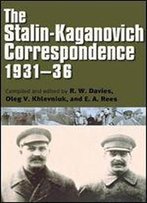
Coronelismo: The Municipality And Representative Government In Brazil (cambridge Latin American Studies)
by Victor Nunes Leal /
1977 / English / PDF
2.9 MB Download
Since its first appearance in Brazil in 1949, Victor Nunes Leal's
Coronelismo, Enxada e Voto, here entitled Coronelismo: the
Municipality and Representative Government in Brazil, has come to
be recognized as a classic analysis of the system that emerges from
'the superimposition of structural forms evolved through the
representative process on an inadequate social and economic
structure'. The text is here published without any substantial
change or addition, according to the author's wish. His insights
and approach remain as suggestive as when they first appeared; as
Barbosa Lima Sobrinho pointed out in the preface to the second
Brazilian edition, the work is not only the analysis of a
structure, but the record of that structure and of the arguments
about it at a certain time, a record important in itself. Its place
in the development of political analysis in Brazil is set out in
Alberto Venancio Filho's introduction: 'a divide in the history of
political science in Brazil... the first landmark of the study of
politics in our Universities'. The work is recognized everywhere as
an essential text for the student of that country.
Since its first appearance in Brazil in 1949, Victor Nunes Leal's
Coronelismo, Enxada e Voto, here entitled Coronelismo: the
Municipality and Representative Government in Brazil, has come to
be recognized as a classic analysis of the system that emerges from
'the superimposition of structural forms evolved through the
representative process on an inadequate social and economic
structure'. The text is here published without any substantial
change or addition, according to the author's wish. His insights
and approach remain as suggestive as when they first appeared; as
Barbosa Lima Sobrinho pointed out in the preface to the second
Brazilian edition, the work is not only the analysis of a
structure, but the record of that structure and of the arguments
about it at a certain time, a record important in itself. Its place
in the development of political analysis in Brazil is set out in
Alberto Venancio Filho's introduction: 'a divide in the history of
political science in Brazil... the first landmark of the study of
politics in our Universities'. The work is recognized everywhere as
an essential text for the student of that country.











